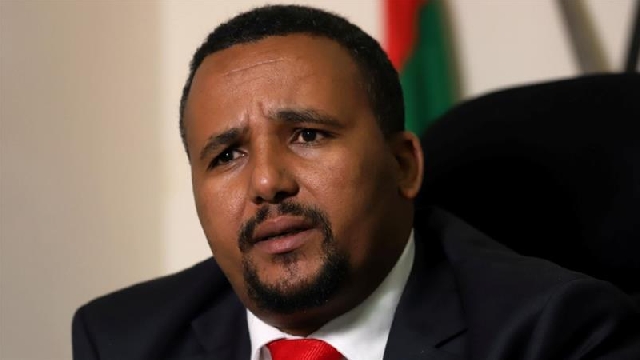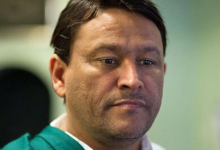Ethiopia files terror charges against Jawar Mohammed, others

Ethiopia has filed terrorism charges against leading opposition leader Jawar Mohammed and other activists, a move that risks further inflaming tensions in the country’s restive Oromia region.
The charges announced on Saturday relate to deadly violence that erupted in July after the killing of Hachalu Hundessa, an iconic Oromo singer and prominent voice in anti-government protests that led to Prime Minister Abiy Ahmed coming to power in 2018.
Authorities said more than 180 people were killed in the unrest.
Overall, the attorney general’s office announced charges against more than 20 suspects, including Oromo opposition leader Bekele Garba, in a Facebook post. The charges include “trying to incite ethnic and religious-based conflict to cause citizens to turn on their fellow citizens”.
Among the other suspects are several high-profile Abiy critics living abroad such as prominent Oromo activist Tsegaye Regassa and former Abiy ally-turned-critic Birhanemeskel Abebe.
The suspects are expected to appear in court on Monday.
Jawar, a media mogul-turned-politician, has huge support among youth in Oromia. He returned to Ethiopia after Abiy came to power and urged exiles to come home amid sweeping political reforms that led to the prime minister receiving the Nobel Peace Prize.
The Oromo make up Ethiopia’s largest ethnic group but had never held the country’s top post until they helped bring Abiy to power. Now, ethnic tensions and intercommunal violence are posing a growing challenge to his reforms.
Jawar has been fiercely critical of Abiy over the postponement of a general election once planned for August because of the coronavirus pandemic. The government’s mandate expires late next month, and a new election date has not been set.
Jawar has been imprisoned since the July unrest. His lawyers have repeatedly asserted he was locked up because of his political views and have called for his release. Human rights groups have warned that such arrests show that Abiy’s political reforms are slipping.
Jawar’s lawyer, Tuli Bayyisa, said he had not been informed of the charges but dismissed them as baseless.
“It’s very astonishing. I’m 100 percent sure that, it might take years and years and years, but they will not prove these allegations if the law really works,” Tuli told AFP news agency.
The attorney general’s statement did not provide details about the charges, but Tuli said in Jawar’s case they seemed to concern a scuffle over Hachalu’s body that resulted in the death of a police officer.
“No single witness has consistently spoken about any crime … by either Mr Jawar or Mr Bekele,” he said.
Last month, security forces shot dead at least five people in a crackdown on demonstrations against Jawar’s detention triggered by reports he was not receiving proper medical care. Other reports have given higher death tolls.
In October last year, dozens of people were killed after Jawar accused security forces of trying to orchestrate an attack against him.
Abiy, in an opinion piece published this week in The Economist, wrote that “individuals and groups, disaffected by the transformations taking place, are using everything at their disposal to derail them. They are harvesting the seeds of inter-ethnic and inter-religious division and hatred”.
He rejected “dangerous demagogues” and said security reforms take time.
Abiy acknowledged alleged abuses by security forces during the bouts of unrest, saying that “given the institutions we have inherited, we realise that law-enforcement activities entail a risk of human-rights violations and abuse”.








